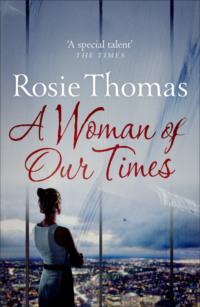
Полная версия
The White Dove
‘Kingsway Hall?’ someone suggested.
‘Salvation Army hostels?’ another man said.
‘They deserve proper accommodation, and a reception after the petition has been presented,’ someone else shouted.
‘There’s time to raise the money,’ the girl in the turban called. ‘Let’s do them proud.’
Jake Silverman was beaming. He produced a hat and waved it. ‘Very well. We’ll begin here and now.’
‘There’s nothing Jake likes better,’ Tony whispered, ‘than orchestrating enthusiasm.’
The hat was passed along the rows and money clinked into it. When it reached the end of their row Amy fumbled in her crocodile-skin bag for her purse. There were two pounds in it. Never, Adeline said, leave yourself without money for a cab ride home. The hat reached her and she stuffed the notes into it.
‘Will you see me home?’ she asked Tony.
He winked at her. ‘Of course. It’s only a twopenny bus ride back to Bruton Street, after all.’
The meeting proceeded to heated discussions of where the marchers could be most comfortably and honourably accommodated, and how the money was to be raised to do it.
At last Jake Silverman waved his red and black plaid arms. ‘Thank you, all of you, very much. Our comrades in the South Wales Miners’ Federation deserve every effort. The meeting is closed now. Join us upstairs, if you can.’
At once, the crowd began to surge out of the room, which had grown uncomfortably hot. Amy had been engrossed and hadn’t noticed it, but now she pulled her hat off and shook out her hair. She saw the girl with the brass earrings looking at her.
Some people were clumping back down the stairs to the street door, but most of them were heading for the flat above. Tony and Amy were carried along with them.
Jake Silverman’s flat was a series of small, low rooms crowded with books, pamphlets and people. The jabber of talk hit them at the door. Hands were waving and gesticulating, voices were shouting each other down and clamouring to make a point before anyone else could refute it. Amy edged through the crowd in Tony’s wake and came to the kitchen. Jake Silverman was standing in the middle brandishing a wine bottle.
‘Come and get it,’ he shouted and a forest of empty glasses was thrust at him. He looked across at Tony. ‘Wield a corkscrew, Tony, will you?’
‘Jake, this is my friend Amy Lovell.’
Jake put down the bottle. ‘Pour it yourselves,’ he called out, and held out a hand to Amy. ‘Any friend of Tony’s is welcome here,’ he said simply, and took her hand in his large, warm one. Amy could almost believe that she felt the crackle as he touched her, he was so charged with energy. Jake’s arm enveloped her shoulders and he turned her to where the girl with the scarlet stockings and the earrings was frying sausages over a corner gas ring.
‘This is Kay Cooper.’ Jake kissed Kay enthusiastically on the mouth. ‘And Angel Mack.’ That was the turban girl. ‘This is Tony’s friend, Amy Lovell.’
Kay waved her sausage fork, and Angel said, ‘Hmm. Tony’s friend, eh? What did you think of the meeting?’
Amy glanced from one to the other. ‘Just that. It made me think.’
Suddenly, both the girls were smiling at her.
‘Have a sausage.’
‘And a glass of wine. Guaranteed to turn your tongue jet black.’
‘Thank you. I will.’ Armed with food and drink, Tony took Amy away into the throng. He introduced her to everyone in sight.
‘Wait!’ she protested. ‘I’ll never remember who everyone is.’
‘You wanted to meet different people,’ he reminded her. ‘What do you think so far? Changed your social perceptions, has it?’
He was teasing her again, but Amy looked straight back at him.
‘Do you know, I think it has, a little.’
She was enjoying the smoky, crowded rooms and the lively babble of talk more than the grandest society party she had ever been to. She thought that she had never met such opinionated people in her life. Or no, that wasn’t quite true. Peter Jaspert was opinionated too, but his opinions stood at the opposite pole from those expressed here. She had never found Peter Jaspert particularly congenial, yet she felt perfectly at home here tonight.
Was this, then, where her sympathies lay? For some reason the idea excited her. By listening very carefully to the talk, and by putting it together with what she already knew from newspaper reports, Amy understood that the hunger marchers were miners from the Rhondda, out of work now, who were marching on London to deliver a petition at Downing Street. Sixty per cent of men were out of work in the valleys.
Amy stared at Kay, whose black curls shook with her passionate recital.
‘This Depression can only get worse. We’re cushioned from it here, you and me and all the rest of us, by our education and because we live in prosperous London. But out there, in the mines and the rest of industry, people are suffering every day.’
Amy thought, who could be more cushioned than me? Bethan came from the valleys, but she had never so much as mentioned these terrible things. How much more don’t I know about? How much more have I never thought about, or bothered to enquire about?
‘Hello again.’ It was Angel Mack, with a jug of wine. ‘More of this stuff? Or there’s beer, if you’d rather. No cocktails or champagne, I’m afraid.’
Was it really so transparently obvious where she came from, then? Amy wondered.
‘Wine, thank you,’ Amy said firmly.
‘I’ve never been to a party like this before,’ she added. ‘Where everyone seems to have so much to say to everyone else.’
Angel laughed. ‘Oh yes, there’s always plenty of talk. That’s half the trouble with armchair comrades like us. Too busy talking about what’ll happen when the revolution comes to actually do anything about making it happen.’
‘Can it happen without you?’
‘Most definitely,’ Angel said. ‘And what about you? Are you on our side?’
Amy thought suddenly of Chance and the cedar tree shading the cool grass, and of the hunger marchers sleeping in village halls on their endless walk to London. And then of Peter Jaspert and his fluent talk of trade tariffs.
‘I’m not on the other side,’ Amy said at last. ‘Although I’ve only just discovered that.’ At once, she felt that she was a traitor to everything she knew. Quickly, to cover up her own uncertainty, she asked, ‘Does Tony Hardy come here a lot?’
Angel glanced curiously at her. ‘Tony comes and goes. Got his own fish to fry, as they say. As far as all this goes, he’s less committed than some but his heart’s in the right place. Does that tell you what you want to know?’
Amy wasn’t sure what she wanted to know.
‘What about Jake Silverman?’
‘Yes, everyone always wants to know about Jake. He’s probably much more like you than you would think. His father and the rest of his family are in the garment trade, rather prosperously so. Jake turned his back on all that when he was eighteen. I think he’d describe himself as a full-time political activist now. He supports himself by working in the Left Bookshop downstairs, and writing the odd article for the quarterlies. He lives here with Kay.’
‘Kay’s his wife?’
‘No,’ Angel said coolly, ‘not his wife. Kay doesn’t believe in marriage.’
Amy began to laugh, so that Angel stared at her even harder. She was thinking of Johnny Guild and his friends, and Peter and Isabel in St Margaret’s, Westminster.
‘I don’t think I do, either,’ Amy said.
‘I imagine not, if you’re going about with Tony Hardy. Here he comes now, looking for you.’
In the next room, someone was piling records on to the ancient gramophone. The music was very loud and very crackly, and there was hardly room to move, let alone to dance. Tony bowed gravely and held out his arms.
At once Amy lost track of the evening’s progress. She had the impression that the party was in full and noisy swing, and that a telephone had been ringing insistently somewhere. She was startled when Jake crossed the room and turned the music off.
‘Sorry, everyone.’ Jake grinned at them. ‘Complaints department. Either the row stops or the police arrive.’
Tony found Amy’s coat for her, and the hat that had been rolled up and stuffed in one of the pockets.
‘Good night,’ Jake boomed from the top of the stairs. ‘See you next time, Tony. And you, Amy Lovell, whoever you are.’
Amy smiled to herself. She wanted to come again. She definitely wanted to come again, and not just because of Tony Hardy.
Out in the darkness she began to walk briskly the way they had come, back towards the bus stop. Then she realized that Tony was still standing at the kerb, and that he was laughing at her.
‘D’you imagine that we’re going to catch a bus at one in the morning? This way. We’ll have to look for a cab towards Oxford Street.’
‘You’ll have to pay,’ Amy reminded him. ‘I put my taxi money in the hunger hat.’
‘I think I can manage. You may do it next time.’
They found a cab, and Tony handed her into it. In the familiar stuffy interior Amy leaned back in her seat. The wine she had drunk and the relaxed atmosphere between them made her ask, without thinking very hard, ‘Angel Mack said something odd. I told her I didn’t think I believed in marriage, and she said something like “I’m not surprised, if you’re going about with Tony Hardy.” What did she mean?’
Amy thought she saw Tony’s head jerk round, silhouetted against the street lights rolling past outside. But then he was so still that she thought she had imagined it.
‘I’ve no idea,’ he said smoothly. ‘Possibly pique because I’ve never made a play for her myself. Practically everyone else has. But I shouldn’t pay too much attention to what Angel says. She works very hard at being modern and hardboiled, and a good deal of it is just for effect.’
‘I liked her,’ Amy said.
‘I like her too. But it doesn’t mean I have to trust her, or believe what she says.’
The silence that followed was awkward, and Amy wished fervently that she had kept Angel’s remark to herself. In the end Tony said, with his old lightness, ‘My views on marriage are the same as yours. So we don’t need to mention it again, do we?’
‘No. Why should we?’
But neither of them could find anything else to say, and the cab rumbled to a stop in Bruton Street. Tony paid the driver, and they got out and watched it rattle away again.
‘Don’t you need him to take you home?’ Amy asked. ‘I don’t even know where you live,’ she added sadly.
‘Not far from Appleyard Street. I’ll walk back. I like walking at night. It’s my thinking time.’
In the shadow of the front doors, Amy fumbled in her handbag.
‘Don’t you have to ring to be let in?’
‘Not after midnight. I agreed it with Mother. It isn’t fair to Glass and the footmen. I’ve got my own key. Father doesn’t know.’
Tony put the key in the lock for her, and the door swung open. He didn’t even glance inside at the cavernous hallway.
‘You do have quite a lot of freedom, you know. You shouldn’t complain.’
‘I’m not, any more. Good night, Tony. Thank you for this evening.’
Amy turned to him, and Tony saw the curve of her cheek, and the shadow of her eyelashes under her hat brim. He kissed her, very quickly, just brushing the corner of her mouth with his own.
‘Good night,’ he answered.
Amy felt a faint, vanishing flicker of disappointment. But what else could she expect from him here in the front doorway?
‘Next time I take you out,’ he added, ‘we’ll do something more orthodox. Dinner, perhaps?’
‘Yes, please.’
He was turning away when Amy called after him.
‘Tony? Are you a Communist?’
He chuckled. ‘There are a number of shades of opinion to the left of Peter Jaspert, you know. No, I’m not a Party member. I belong to the ILP. The Independent Labour Party. Good night, Amy Lovell.’
Amy closed the big door quietly behind her, and made sure that the bolts were secure. Then she walked slowly up the great curve of staircase. On the first floor, where in the daytime a high glass dome brought light spilling down into the well of the house, she stopped under a line of portraits. The King’s Defenders, back over the centuries. Would Gerald, she wondered, take up the ceremonial sword to defend his Sovereign against Jake Silverman, and Kay and Angel and even Tony Hardy, when their revolution came? And on which side of the barricades would Amy Lovell be standing?
‘I’ve no idea,’ she said aloud to the row of impassive faces. ‘I’ve no idea at all. I should start thinking about it, shouldn’t I?’
Upstairs, Amy saw that the light was still on in the old night nursery. Bethan was sitting in an armchair beside the fire, knitting. She pursed her lips when Amy came in.
‘It’s very late, lamb. I was beginning to worry.’
Amy knelt down beside her and put her head on Bethan’s shoulder. Bethan hugged her as she used to do when Amy was little.
‘Don’t worry about me so much. Bethan … I wanted to ask you something.’ The thought of the Rhondda, and the things that Kay Cooper had told her about the way people were living there, was vivid in her mind.
‘What’s that, then?’ Bethan was rolling up her knitting. Usually Bethan looked to Amy exactly as she had done for fifteen years, ever since she had come to Chance as a sixteen-year-old nurserymaid. She was plumper now, but her round, plain face was as cheerful as it had always been, and she moved with the same quick energy. But tonight Amy saw that her eyes were heavy and dark, and her shoulders sagged. It was almost two in the morning, and Bethan was exhausted with waiting up for her. She realized that she had never glimpsed that tiredness before, and she frowned at the recognition of her own selfishness.
‘It doesn’t matter tonight,’ Amy said quickly. ‘You go to bed now. I don’t need anything. Bethan?’ The maid stopped in the doorway. ‘Thank you for looking after us all.’
‘Go on with you now.’
Nick Penry reached up for the old khaki kitbag that had been stowed away on top of the wardrobe. He shook it out, and began carelessly stuffing a few pieces of clothing into it.
Mari had been watching in silence, her chapped hands gripping the brass bed-rail, but now she said, ‘Let me do that. You’ll mix everything up.’
Silently he handed the bag to her. Mari refolded the two shirts and the darned pullover and socks. Her eyes were blurred with tears and she shook her head angrily to clear them. Nick sat down on the edge of the bed, staring at the faded linoleum with his hands hanging loosely between his knees.
They had been arguing again.
They had always argued, right from the beginning, but they had always been able to make it up again, fiercely or gently, in bed.
But they couldn’t do that now, or almost never. Mari had changed from the rosy-cheeked provocative girl she had been when she married into a white, frightened woman. She was afraid of anything worse happening to them, afraid of anything that might disturb the fragile equilibrium they lived by. She was afraid of another handicapped baby. She was afraid for Dickon, now and in the future when the two of them wouldn’t be here to care for him any longer. She was afraid of Nick turning on the Means Test man, who came to peer insultingly at their back kitchen in search of any unexplained luxuries that might point to money coming in beyond the bare minimum they existed on. If there was any hint that they earned money elsewhere, their tiny unemployment benefit would be cut off. She was afraid of any of them falling ill, because there was nothing spare to pay for that. And she was newly afraid of Nick’s convictions, the flaring beliefs that made him revile the soft options, the ‘company unionism’ that was threatening to spread in the hard times, and despise the owners and the government for their agreement that increased the miners’ hours to eight a day underground again, instead of seven and a half. She was afraid that Nick would never get a job again. He had stepped too far out of line. His name was known to the owners and their agents.
And all her fear seemed to trigger off the very opposite in Nick, as if he had to stand firm for both of them. He clung harder to what he believed in, to the socialist ideals that earned the nickname ‘Little Moscow’ for their corner of the bleak, depopulated valleys. It made him angrier, and more determined, and somehow less knowable. It didn’t make him any easier to love. And now he was setting off to march to London, and she was afraid of being without him.
With a sob, she dropped the bag and went to sit beside him. He put his arm around her, warm and protective.
‘Have you got to go?’
‘You know I do. If I don’t, why should anyone else bother? It’s something we can do to make people across the country look at us, and think about us. If we can just get public opinion with us, Mari. The Miners’ executive are meeting MacDonald again, to try to win him over, make him understood what we want, and why. He’s not to be trusted, but Henderson is on our side. The march might make the difference.’
Mari’s face was wet with tears. She hated the words. They were too familiar, too impersonal.
‘Can’t you let the others go for once? Stay here with Dickon and me. We need you more than they do.’
Gently Nick let her go. ‘You know I can’t do that. It’ll only be two weeks. I’ll get a ride back somehow.’
He took up a blanket wrapped in a gabardine cape that had belonged to his father. He strapped it beneath the bag, then swung the bag on to his back. It hung there, tellingly almost empty.
‘Best to be travelling light,’ Nick said. ‘It’s time to be going, love.’
They left the room in silence. It was very early, hardly light yet, and Dickon was still asleep in the other bedroom, no more than a cupboard at the stairhead. Nick stooped in the doorway and knelt by the low bed to kiss him. When the child was asleep he looked like any other little boy, the liveliness briefly rubbed out of his face by oblivion. Nick looked at him for a long moment, hopelessly wishing.
‘You’d better have something before you go,’ Mari said flatly.
She went down to the icy kitchen and stirred the fire under its blanket of coal dust. With a horseshoe of solidly twisted newspaper she coaxed up a brief blaze and set the kettle on it. Then she brought the heel of a loaf out of the pantry and sliced it, spreading it carefully with thick dripping out of a blue-glazed bowl.
‘I don’t need that,’ Nick said. ‘You and the boy have it.’
‘You’ve left us more than enough money,’ Mari said.
That was true. Nick was setting out to walk to London with hardly more than a shilling in his pocket. He sat down in the armchair to pull his boots on, glancing first at the oval patches worn almost through, and the split already gaping between the sole and the upper.
‘You could have done with new boots,’ Mari said.
He smiled at her suddenly. ‘So could every man setting out this morning, I dare say.’
Mari handed him his tea, in the precious china mug that he had bought for her long ago at Barry Island. The tea was sweetened with a hoarded tin of condensed milk. Dickon could finish the rest. He loved licking the thick yellow stuff off a spoon.
Nick drank gratefully, looking at her over the rim of the mug. ‘Remember that day?’ he asked, and she nodded. It had been their day together, and the day of the explosion too. There was no happiness without an equal or deeper seam of sadness, Mari thought bitterly. Even if he were to walk twice round the world, Nick couldn’t change that.
He was anxious to be off now, like a small boy before an adventure. He bit impatiently into one piece of bread and dripping and wrapped up the other to go into his bag.
‘Here,’ Mari said. From a drawer she produced two flat bars of chocolate and slipped them into the bag too. She had put by the money for them secretly, buying less food for the week and doing without when Nick was out of the house. Nick didn’t try to protest. He understood the gesture and the price of it. He smiled crookedly instead, then put his arms round her and kissed her.
‘I’ll eat a square a day, and think of you,’ he promised. She felt light in his arms, birdlike, and small for the weight of responsibility that he felt towards her and Dickon, dependent on him. Nick suddenly thought of saying that he wouldn’t go after all, that he would stay because she wanted him to. But the men were waiting for him at the bottom of the hill. He had to go. He had to act on what be believed in, otherwise how could he justify the belief?
‘I won’t come down with you,’ she whispered. ‘Because of Dickon.’
Nick kissed her again and they shivered, held against one another. Then he lifted the bag and the blanket bumped awkwardly.
‘Two weeks,’ he promised, and walked out into the dark, dripping entry. Someone had scratched WORK, NOT WALKS on the bricks.
Mari listened to his steps receding into silence, and then stared round the kitchen at his empty mug, and the imprint of him in the armchair where he had bent to lace his worn boots.
It was so cheerless without him that she was almost crying again. When he was here they quarrelled, repetitively and wearyingly, and when he was gone she couldn’t bear it.
Upstairs Dickon began calling her. ‘Mam. Maa-am.’ He had only a few proper words. The others that he used most were ‘Dad’ and ‘More’. Even Dickon was beginning to understand that there usually wasn’t any more, but his endless repetition of it was one of the day’s painful refrains. Mari sighed.
‘I’m coming, love,’ she called up to him.
Nick squared his shoulders beneath the straps and set off down the hill. The wet slate roofs of the houses shone like mirrors, and smoke from the chimneys already hung like greasy bunting over them. The air smelt of coal as it always did, gritty and rough at the top of his lungs, cut through with the rival scents of damp and, very faintly, of frying food. The streets were deserted. Those who had work were already there, and it was too early yet for the knots of aimless men to gather and talk on the street corners.
The arranged meeting point for the Nantlas marchers was the old pit gates. It had never reopened after the explosion, and the heavy padlocks and chains on the gates were rusted over.
As Nick came over the humped iron bridge spanning the railway and the river, he saw that most of the twenty-odd marchers from the village were already there, waiting for him.
Two or three of them waved cheerfully at him, and called out greetings.
‘Feeling in good leg are you, Nick boy?’
‘Pack up your troubles in your old kitbag …’ someone else sang in a fine, resonant tenor, and there was a ripple of ironic laughter.
Nick was counting the heads. Two more men joined them, making the full complement. He took a deep breath. It was the setting-off point at last. There had been weeks of planning, with the Fed at first wary of then, finally, co-operative with the National Unemployed Workers Movement and with the idealistic young men of Appleyard Street, London. Letters of encouragement had come from Jake Silverman, and funds had been sent by the Communist Party of Great Britain. Jake Silverman had even followed his letters to the Rhondda, and Nick had listened to him talking about the coming of the glorious revolution to a roomful of unemployed miners.
His colleagues on the Federation executive recognized that the hunger marches were as good a way as any of drawing public attention to the mass of unemployed. But Nick himself was more interested in marching the one hundred and fifty miles straight to London and confronting the Prime Minister with the Federation’s demands. He had volunteered himself as a march organizer unhesitatingly, with that goal in mind. He had been proud of the idea that he would be part of the deputation of miners that would march on from Trafalgar Square to Downing Street. And yet, now that the moment had come, he felt the wrench of leaving Mari and Dickon. The crowd of men was growing restive. They jostled one another and called out their impatience.









